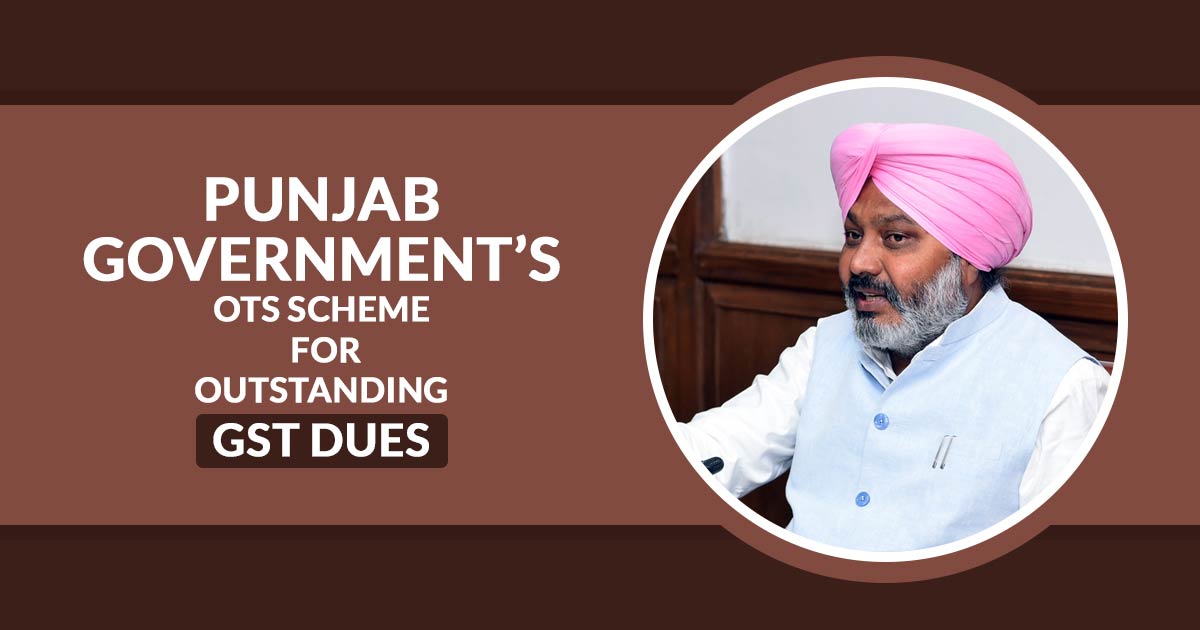
The Punjab Government has launched a one-time settlement (OTS) initiative aimed at winning over traders and resolving approximately ₹6000 crore in outstanding GST dues.
This move, as per the government, aims to alleviate the burden of past cases, allowing traders and industrialists to better comply with the Goods and Services Tax (GST).
Harpal Singh Cheema, Punjab’s Finance Minister, highlighted that the total outstanding tax, interest, and penalty as of March 31, 2023, amounted to ₹6086.25 crore, primarily targeting dues up to ₹1 Crore.
Read Also: A Wide Guide for GST Compliance Management for Laypersons
Under this One Time Settlement (OTS) scheme, a full waiver of pending dues amounting to ₹528.38 crore is proposed, benefiting 39,787 taxpayers with demands below ₹1 Lakh.
Eligibility for settling dues under this scheme is for taxpayers whose assessments were concluded by the state taxation department until March 31, 2023.
This initiative applies to GST pending dues under various acts including the Punjab General Sales Tax Act, 1948, the Central Sales Tax Act, 1956, the Punjab Infrastructure (Development and Regulation) Act, 2002, and the Punjab Value Added Tax Act, 2005.
Under this scheme taxpayers with total demand (including tax, penalty, and interest) up to ₹1 Crore as of March 31, 2023, will qualify for settlement.
Important: PETD Investigates Around 700 Boutiques in Punjab Due to GST Evasion
Cheema explained, “This scheme offers a complete waiver of tax, interest, and penalty for cases with pending dues below ₹1 Lakh. For dues ranging from ₹1 Lakh to ₹1 Crore, it includes a 100 percent waiver on interest, 100 percent on penalty, and 50 percent on the tax amount.”
Encouraging traders and industrialists to act promptly, Cheema announced a four-month window from November 15, 2023, to March 15, 2024, for availing of this scheme.
Highlighting the broader benefits, he mentioned, “The OTS addressing pre-GST arrears aims not only to reduce litigation stemming from existing legacy cases but also facilitates smoother GST administration by the taxation authorities, optimizing the department’s resources.”









